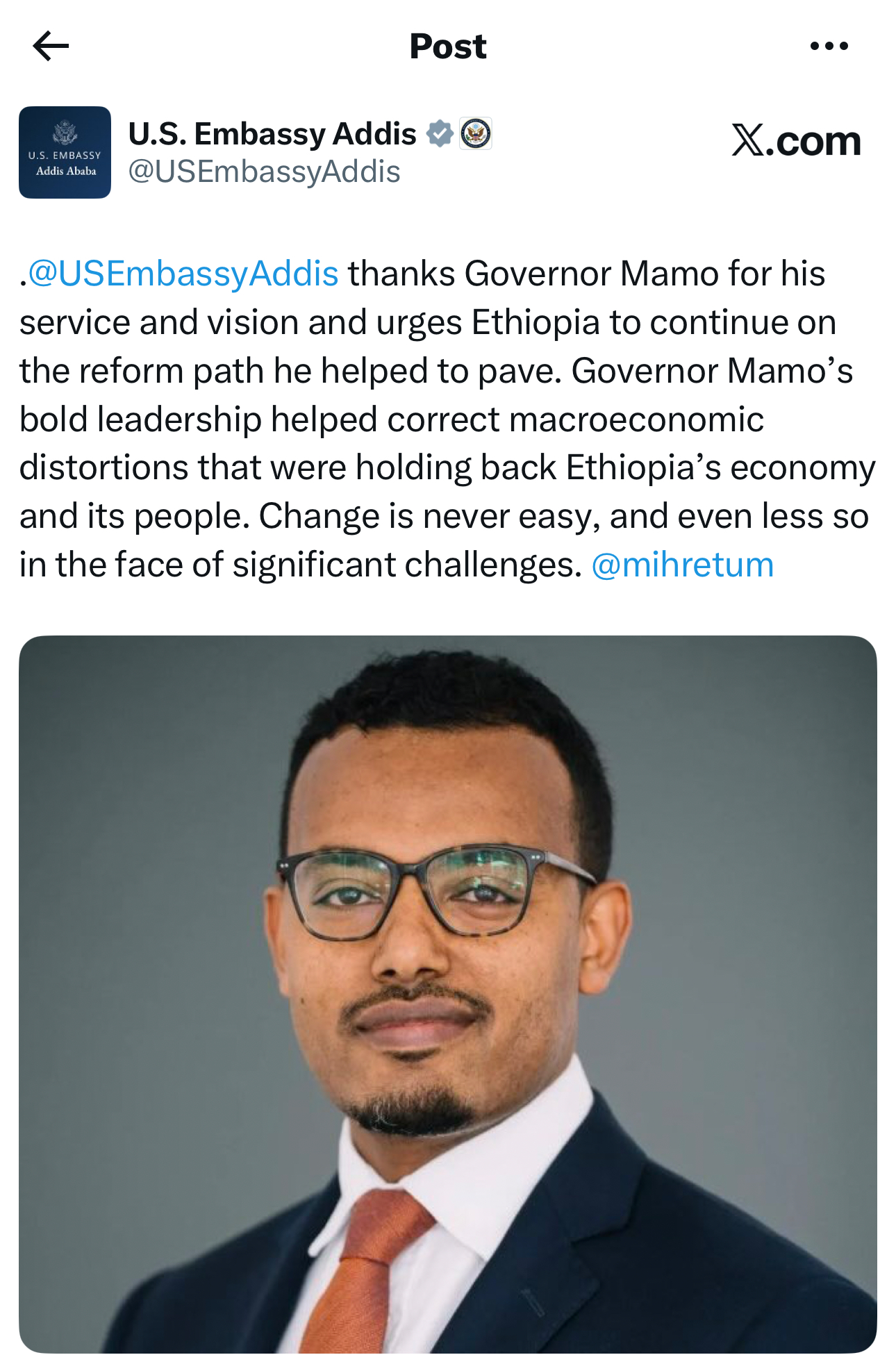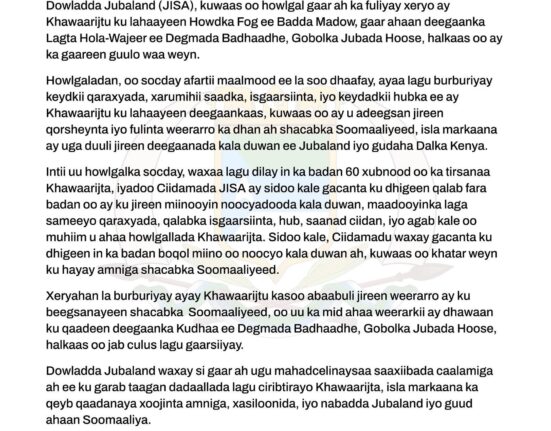The sudden departure of Ethiopia’s central bank governor, Mamo Mihretu, has stirred questions both inside Ethiopia and abroad. While the official narrative highlights his role in reforming macroeconomic distortions, speculation is mounting that his close ties with Washington may have accelerated his exit.
The spark came after the U.S. Embassy in Addis Ababa released a public statement thanking Mamo for his “service and vision” and praising his “bold leadership” in correcting long-standing economic distortions. The statement also emphasized that “change is never easy, and even less so in the face of significant challenges,” framing Mamo’s legacy as one of reform and resilience.
A Diplomatic Gesture—or Something Deeper?
To some observers, the U.S. Embassy’s warm words appear to be nothing more than standard diplomatic courtesy. Ethiopia has been navigating painful economic reforms, and international partners—including the U.S.—have an interest in recognizing efforts to stabilize the economy.
Yet others interpret the tone of the statement differently. The unusually direct praise, coupled with the timing of Mamo’s resignation, has fueled speculation that his links with Washington may have run deeper than officially acknowledged. Was there a hidden channel of cooperation, perhaps beyond Ethiopia’s formal government structures?
The Question of Allegiance
Critics go further, suggesting that if Mamo had indeed built private relations with U.S. actors without transparent government oversight, such actions could border on betrayal. In Ethiopia’s sensitive political climate—where sovereignty, economic independence, and foreign influence are hotly contested—such ties could easily be perceived as treasonous.
Analysts point out that Ethiopia’s ruling elites remain wary of overdependence on Western institutions. Any perception that a top economic leader was “too close” to Washington might have made his position untenable. If that is the case, his exit was not only expected but also, in the eyes of critics, “the right time.”
Reform, Pressure, and Exit
It is equally possible that Mamo’s departure reflects the natural exhaustion of his reform agenda. Restructuring Ethiopia’s economy in the face of high inflation, debt burdens, and currency shortages required unpopular measures. While applauded abroad, these same reforms generated domestic pushback.
In this light, U.S. praise might be genuine appreciation for a reformer who carried out difficult changes—changes that were ultimately unsustainable politically. His exit may therefore signal a recalibration of Ethiopia’s economic policy, balancing reform pressures with social and political realities.
Conclusion
The U.S. Embassy’s statement has added intrigue to Mamo’s resignation. Whether it reflects a hidden relationship, a diplomatic farewell, or recognition of painful reforms, it underscores the delicate intersection of Ethiopia’s sovereignty, its economic challenges, and foreign influence. For some, his departure was overdue. For others, it marks the end of a reform era. For all, it raises the question: who truly shapes Ethiopia’s economic future?








